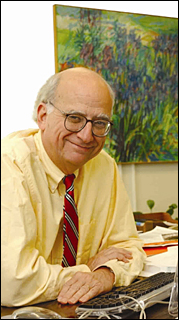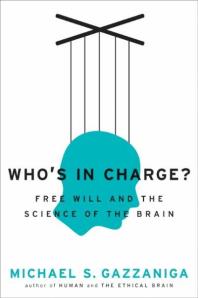 Where does our brain end and where does our mind begin? Are we controlled by our own internal wiring or can we rise above our circumstances through free will? This is a luncheon where the physical collides with the metaphysical.
Where does our brain end and where does our mind begin? Are we controlled by our own internal wiring or can we rise above our circumstances through free will? This is a luncheon where the physical collides with the metaphysical.
In the novel (and later a movie) “The Boys from Brazil,” a fictional Joseph Mengele implants genetic clones of Adolf Hitler into a the wombs of over 90 women in the hopes of creating the Next Reich. However, Mengele takes things one more step because he tries to recreate the emotional mindset of the young Hitler, complete with a domineering older father against the backdrop of a much younger and pliant mother. As the novel winds through the jungles of Brazil and then spirals outward to where these genetic Hitlers are growing up in a modern world, Mengele engineers the sudden deaths of the fathers to mirror the sudden death of Hitler’s father when he was a teen. A fictional version of Simon Wiesenthal is able to break up Mengele’s final medical experiment, but the novel leaves you hanging because in the final pages, one of the surviving teenage-Hitlers now begins to exhibit delusions of grandeur.
Can you replicate past behavior? Can the mind be that predictive? Does one impact the other—does the mind enable or constrain the brain?
 Located in the private room at Palio D’asti to an overflow group of guests in January and in June to a group of group of smart Manhattan diners at Prime House, Dr. Michael Gazzaniga spent a good two hours with us debating that very point. In his latest book, “Who’s in Charge: Free Will and the Science of the Brain,” he tackles this subject in book form, based on the series of his Gifford Lectures, which for the past century has been the home prestigious conversations on religion, science, and philosophy.
Located in the private room at Palio D’asti to an overflow group of guests in January and in June to a group of group of smart Manhattan diners at Prime House, Dr. Michael Gazzaniga spent a good two hours with us debating that very point. In his latest book, “Who’s in Charge: Free Will and the Science of the Brain,” he tackles this subject in book form, based on the series of his Gifford Lectures, which for the past century has been the home prestigious conversations on religion, science, and philosophy.
As author of “The Ethical Brain,” his current introduction reads, “Known as the father of Cognitive Neuroscience, Gazzaniga makes a powerful argument for free will. The question of free will versus determinism continues to vex scientists, psychologists and philosophers, but the biological evidence is not as stridently deterministic as it is often presented. Dr. Gazzaniga argues that the human mind constrains the brain and monitors our behavior, much as a government constrains its citizens. Drawing on cutting-edge neuroscience and psychology, as well as ethics and law, he offers a deeply considered case for human responsibility.”
We have moved miles since the popularization of pseudo-sciences like Phrenology, that suggested that bumps on our head would determine our behavior. However, as we learn more about the physiology of the brain and unlock those secrets, we will soon wander to where the black-and-white meets the grey—understanding how the mind works. Meshing science with philosophy will be the great race of the 21st century but advertising aggregators, like Google and others, are hard at work building out algorithmic proxies on how we think based on what we buy.













